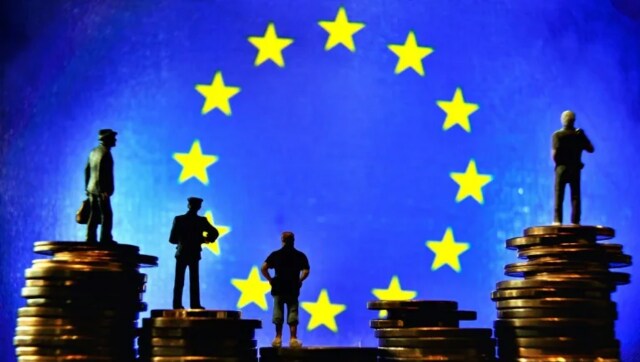Deal! EU reaches agreement on spending rules after 2 years of wrangling
For two years, the European Union worked tirelessly to create reforms that would appease more conservative member states like Germany as well as more flexible nations like France and Italy

Representational Image.
Early on Saturday, the European Parliament and the member states came to an agreement on changes to EU budgetary regulations intended to increase investment while containing spending.
The agreement updates the Stability and Growth Pact, a set of guidelines that was established in the late 1990s and caps national debt at 60% of GDP and public deficits at 3%.
Following sixteen hours of negotiations, the Belgian Presidency of the EU Council declared, “Deal!” on social media platform X.
For two years, the European Union worked tirelessly to create reforms that would appease more conservative member states like Germany as well as more flexible nations like France and Italy.
After much wrangling between Berlin and Paris, the 27 member states struck a deal in December, then began talks with negotiators from the European Parliament.
The text was criticised for its great complexity and derided by left-wing officials as a tool for imposing austerity on Europe.
The negotiators finally reached an agreement early Saturday, in time for the text to be voted on in Strasbourg this spring before the parliamentary break ahead of European elections.
The reforms will be formally adopted after agreement between lawmakers and states.
The agreement will allow member states to apply the new rules to their 2025 budgets.
“The new rules will help achieve balanced & sustainable public finances, structural reforms, foster investments, growth & jobs creation in the EU,” the Belgian presidency said.
– Wiggle room –
The former budgetary framework was considered too drastic and was never really respected.
The rules had, however, been suspended since the coronavirus pandemic to give member states wiggle room to spend more during a period of great economic upheaval.
During the initial debates between countries, the battle was fierce over how much those old limits should be relaxed to give more room for investment.
With war raging in Europe and the EU making a green transition push, states led by France argued for allowing more space to finance these key areas, including, for example, supplying critical arms to Ukraine.
While confirming the previous limits on debt and budget deficits, the new agreement allows more flexibility in the event of excessive deficits.
The text provides looser fiscal rules more adapted to the particular situation of each state, allowing big spenders a slower route back to frugality.
The tailor-made approach means each country presents their own adjustment trajectory to ensure their debt’s sustainability, giving them more time if they undertake reforms and investments and allowing a less painful return to fiscal health.
Monitoring would focus on expenditure trends, an economic indicator considered more relevant than deficits, which can fluctuate depending on the level of growth.
But Germany and its “frugal” allies managed to tighten this budgetary framework by imposing a quantifiable minimum effort to reduce debt and deficits for all EU countries, despite the reluctance of France and Italy.
These modifications have greatly complicated the text.
“We have a deal! A new economic governance framework was much needed,” Dutch MEP Esther de Lange said on X.
“We have ensured that the new fiscal rules are sound and credible, while also allowing room for necessary investments,” said de Lange, of the centre-right European People’s Party Group.
The reforms are also supported by the EU’s Renew liberals and a large majority of the Socialist and Democrat groupings.
The Greens and some S&D elected officials, however, reject it, as do the radical left.
These elected officials have denounced a return to austerity after three years of suspended budgetary rules due to the pandemic and war in Ukraine.
“We need investments in industry, in defence, in the ecological transition, that’s the urgency today, it is not to bring economically absurd rules up to date,” economist and S&D MEP Aurore Lalucq of France told AFP.
She denounced it as a “political error which will be used by populists to attack Europe”.
(with inputs from AFP)
Join our Whatsapp channel to get the latest global news updates
